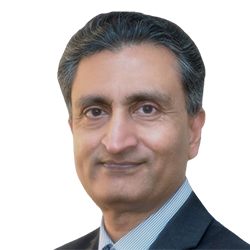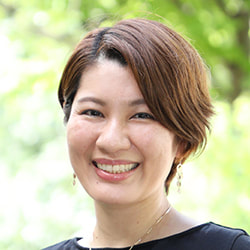Session 7
12 July 2022
4:30 - 6:00pm SGT (UTC+8)
5:30 - 7:00pm JST
6:30-8:00pm AEST
12 July 2022
4:30 - 6:00pm SGT (UTC+8)
5:30 - 7:00pm JST
6:30-8:00pm AEST
Abstract
The past decade has witnessed an explosion in our understanding of the genetic and biochemical perturbations that cause human disease, but their complexity poses major scientific and technical challenges to the discovery of next-generation therapeutics. Here, I will discuss recent work from my laboratory to develop new approaches that extend the reach of therapeutics discovery to previously undrugged classes of targets, such as macromolecular interactions between proteins. These new approaches subtend platforms that parse complex biochemical pathways to identify new targets, deploy structure-guided methods for lead discovery, and exploit biochemical imaging to deconvolute mechanisms of action.
The past decade has witnessed an explosion in our understanding of the genetic and biochemical perturbations that cause human disease, but their complexity poses major scientific and technical challenges to the discovery of next-generation therapeutics. Here, I will discuss recent work from my laboratory to develop new approaches that extend the reach of therapeutics discovery to previously undrugged classes of targets, such as macromolecular interactions between proteins. These new approaches subtend platforms that parse complex biochemical pathways to identify new targets, deploy structure-guided methods for lead discovery, and exploit biochemical imaging to deconvolute mechanisms of action.
Bio
Director, Cancer Science Institute of Singapore
Distinguished Professor of Medicine, National University of Singapore
Programme Director, DITL@IMCB, A*STAR Singapore
Director, Cancer Science Institute of Singapore
Distinguished Professor of Medicine, National University of Singapore
Programme Director, DITL@IMCB, A*STAR Singapore
Abstract
For over 130 years, metastatic organotropism remained as one of the greatest mysteries in cancer biology. Experimental evidence indicates that tumor-derived microvesicles, referred to as exosomes, released by lung-, liver- and brain-tropic tumor cells fuse with cells at their future metastatic sites preparing the pre-metastatic niche. Proteomic profiling of exosomes revealed integrin expression patterns associated with lung and liver metastasis, whereas CEMIP in brain tropic exosomes enhanced metastasis in the brain. To gain a more comprehensive understanding of the exosomal protein cargo and tumor progression, we investigated the proteomic profile of exosomes in 426 human samples from tissue explants, plasma and other bodily fluids. Machine learning classification of plasma-derived exosome proteomes revealed 95% sensitivity/90% specificity in identifying cancer-associated exosomes. We found that the protein signatures that determine cancer types were derived from a variety of sources, including tumor tissue, distant organs, as well as the immune system, emphasizing the importance of using non-cancer cell-derived exosomal signatures to identify cancer-associated alterations and define tumor-associated biomarkers. Finally, we defined a panel of tumor-type specific exosomal proteins in plasma, which may help classify tumors of unknown primary origin. These data suggest that tumor-associated exosomal proteins could be used as biomarkers for early-stage cancer detection and potentially for diagnosing tumors of unknown primary origin.
For over 130 years, metastatic organotropism remained as one of the greatest mysteries in cancer biology. Experimental evidence indicates that tumor-derived microvesicles, referred to as exosomes, released by lung-, liver- and brain-tropic tumor cells fuse with cells at their future metastatic sites preparing the pre-metastatic niche. Proteomic profiling of exosomes revealed integrin expression patterns associated with lung and liver metastasis, whereas CEMIP in brain tropic exosomes enhanced metastasis in the brain. To gain a more comprehensive understanding of the exosomal protein cargo and tumor progression, we investigated the proteomic profile of exosomes in 426 human samples from tissue explants, plasma and other bodily fluids. Machine learning classification of plasma-derived exosome proteomes revealed 95% sensitivity/90% specificity in identifying cancer-associated exosomes. We found that the protein signatures that determine cancer types were derived from a variety of sources, including tumor tissue, distant organs, as well as the immune system, emphasizing the importance of using non-cancer cell-derived exosomal signatures to identify cancer-associated alterations and define tumor-associated biomarkers. Finally, we defined a panel of tumor-type specific exosomal proteins in plasma, which may help classify tumors of unknown primary origin. These data suggest that tumor-associated exosomal proteins could be used as biomarkers for early-stage cancer detection and potentially for diagnosing tumors of unknown primary origin.
Bio
Ayuko Hoshino is an Associate Professor at Tokyo Institute of Technology. She obtained her Masters and PhD degrees at The University of Tokyo, where she studied cancer stromal fibroblasts and the tumor microenvironment and received the Excellent Thesis award. In September 2010, Dr. Hoshino joined Dr. David Lyden’s laboratory at the Weill Cornell Medicine as a visiting graduate student and learned the importance of cancer-derived exosomes in inter-cellular communication and establishment of the “soil” for cancer metastasis. Upon joining Dr. Lyden’s laboratory, she became involved in the project investigating the role of cancer-derived exosomes in metastasis and their utility as a biomarker. She led the project investigating exosomes in driving organotropism of cancer metastasis, “why cancer metastasizes to certain organs”, which remained a mystery for over a century (Hoshino et al., Nature 2015; Rodrigues*, Hoshino* et al., Nat Cell Bio. 2019). Most recently her group investigated the proteomic profile of exosomes in 426 human samples, and identified that panel of exosomal proteins could serve as a biomarker for determining cancer vs. non-cancer as well as classifying the primary tumor of origin (Hoshino et al., Cell 2020). Her laboratory’s current interest expands to exosome biology in neurodevelopmental disease, aging and pregnancy complications
Ayuko Hoshino is an Associate Professor at Tokyo Institute of Technology. She obtained her Masters and PhD degrees at The University of Tokyo, where she studied cancer stromal fibroblasts and the tumor microenvironment and received the Excellent Thesis award. In September 2010, Dr. Hoshino joined Dr. David Lyden’s laboratory at the Weill Cornell Medicine as a visiting graduate student and learned the importance of cancer-derived exosomes in inter-cellular communication and establishment of the “soil” for cancer metastasis. Upon joining Dr. Lyden’s laboratory, she became involved in the project investigating the role of cancer-derived exosomes in metastasis and their utility as a biomarker. She led the project investigating exosomes in driving organotropism of cancer metastasis, “why cancer metastasizes to certain organs”, which remained a mystery for over a century (Hoshino et al., Nature 2015; Rodrigues*, Hoshino* et al., Nat Cell Bio. 2019). Most recently her group investigated the proteomic profile of exosomes in 426 human samples, and identified that panel of exosomal proteins could serve as a biomarker for determining cancer vs. non-cancer as well as classifying the primary tumor of origin (Hoshino et al., Cell 2020). Her laboratory’s current interest expands to exosome biology in neurodevelopmental disease, aging and pregnancy complications
CHAIRS
Oliver DREESEN, A*STAR Skin Research Laboratories, Singapore
Aiko SADA, Kumamoto University, Japan
Oliver DREESEN, A*STAR Skin Research Laboratories, Singapore
Aiko SADA, Kumamoto University, Japan



